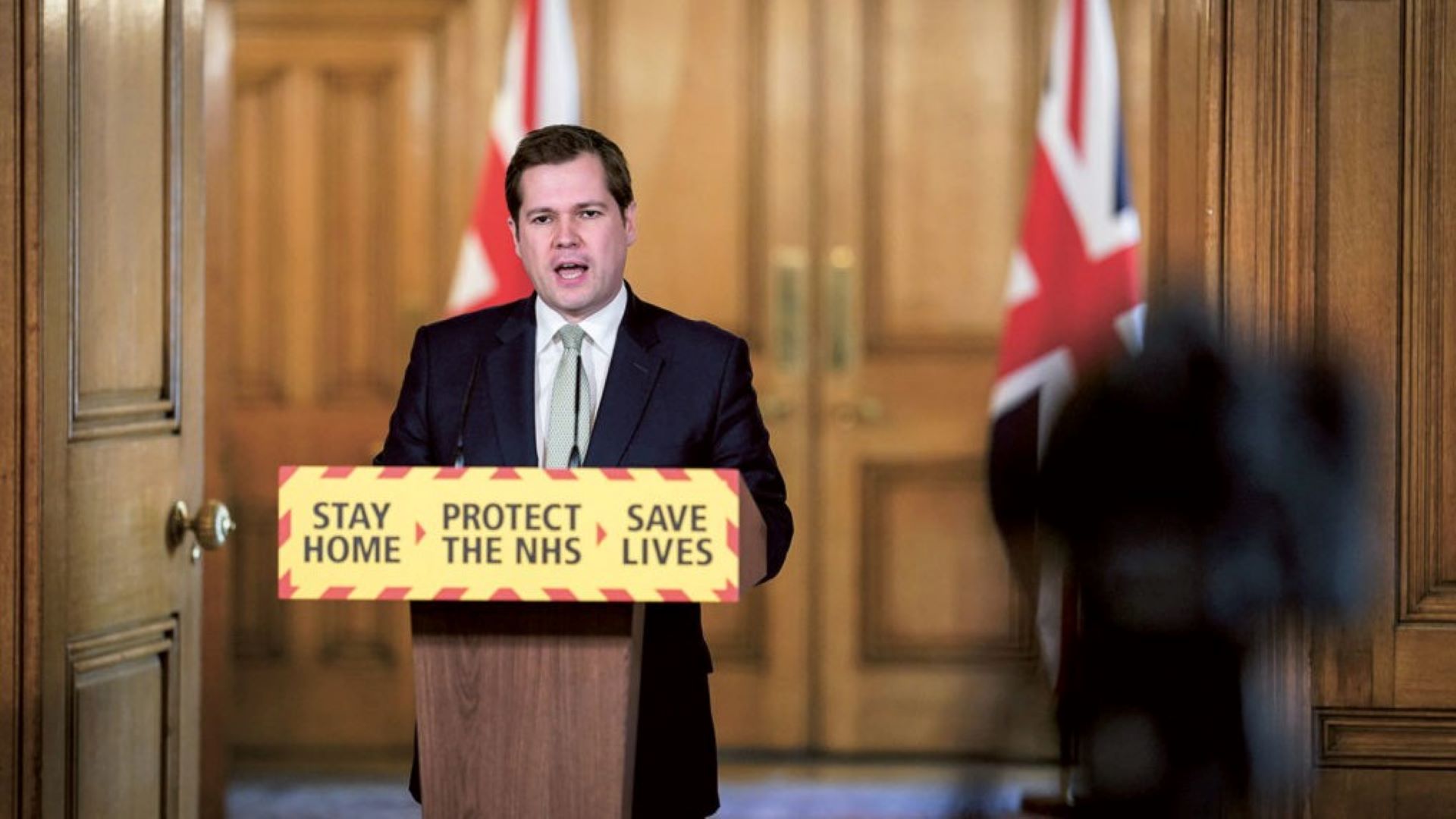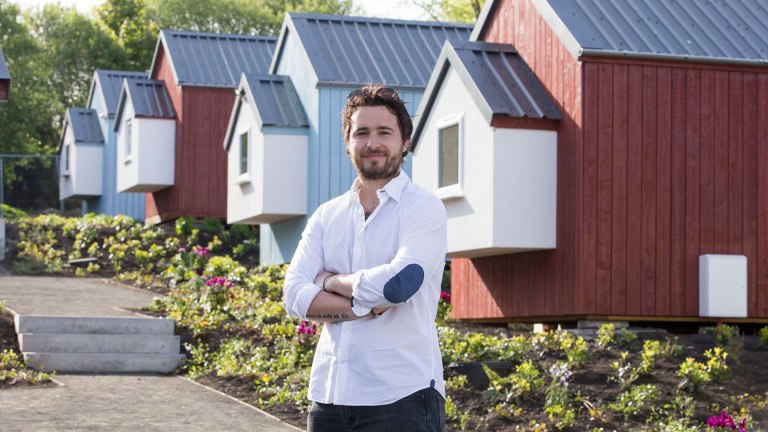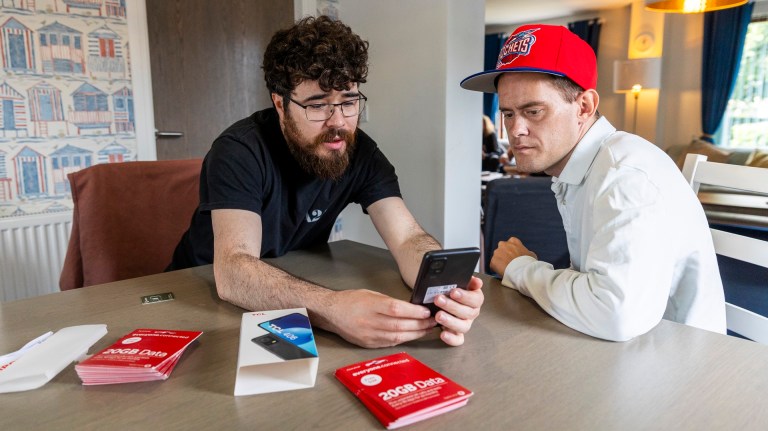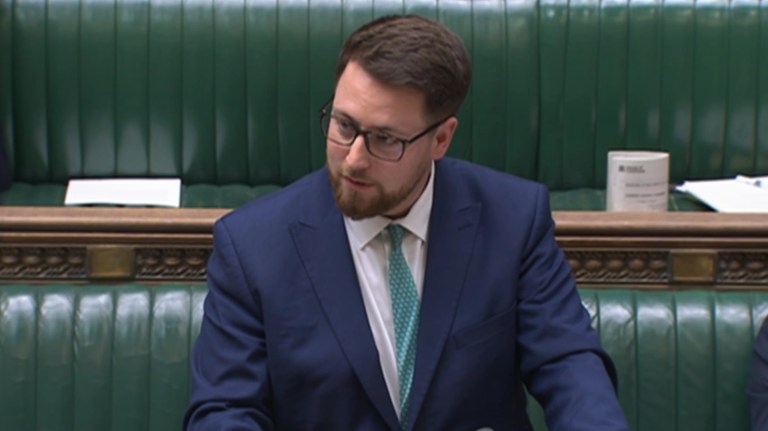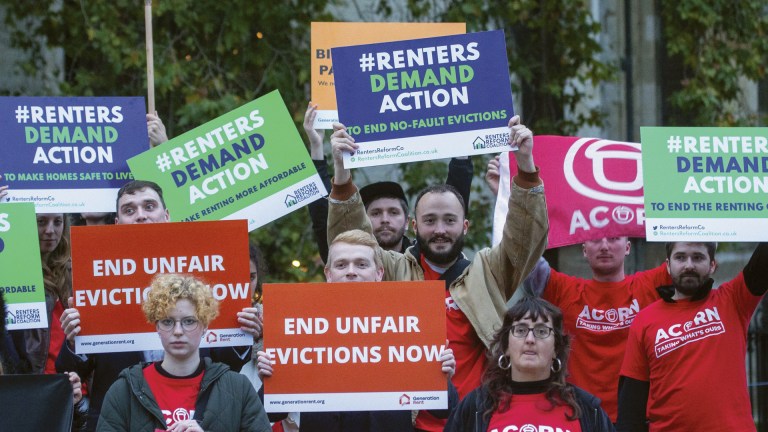The Big Issue has been clear from the start of this crisis – it is unacceptable for people to be dumped back on to the streets. The scourge of rough sleeping must end. We will keep pressing for answers.
Because the need is not just to prevent those with experience of homelessness from returning to the streets, ending rough sleeping also means preparing for people losing their home as the UK lurches into a deep recession.
An escalating crisis
District Councils’ Network analysis released last week laid bare the true scale of the homelessness crisis that threatens to follow the Covid-19 pandemic. Almost half a million households that have seen their income slashed and that put more than half their pay towards private rent are in danger of becoming homeless.
Those shocking figures include not just Big Issue vendors, but low-earning frontline workers in the health, food and logistics industries who are currently risking their own health to treat people battling the virus, ensure supermarket shelves are stocked and keep the country going. Lone parents and young people who were already struggling are also at risk once the current eviction ban is lifted at the end of June.
Shelter chief executive Polly Neate has demanded the government take note of the findings, because people will be needed to trigger the economic recovery.
“With just a bit of help, they can ride out this crisis, they get can get a new job, and move somewhere cheaper,” she said.
“Without that help, we are going to see a tsunami of evictions once the lockdown ends.”
Urgent action is needed to stop the Covid-19 pandemic ushering a new homelessness crisis on to our streets whether it’s people returning or those facing the horrors of homelessness for the first time.
Before the coronavirus took hold, the UK government had announced plans to put an end rough sleeping by 2024, at the end of their term of office. The swift action they took as the crisis began, while imperfect, demonstrated that when backs are against the wall the political will is there to achieve change in a fraction of that time.
The Big Issue will keep holding those in power to account as we move out of lockdown. The Covid-19 crisis is the chance for a fresh start. We have a chance now to ensure no one has to sleep rough in this country again. It is an opportunity we must seize.
Scotland’s view
Kevin Stewart MSP, minister for local government, housing and planning
“Anyone sleeping rough or in emergency accommodation, where physical distancing is impossible, is particularly exposed and at greater risk during this pandemic. In addition, rough sleepers are statistically more likely to have pre-existing health conditions which place them at greater risk from becoming infected. We have therefore worked closely with local authorities and frontline partners to put in place an effective and swift response to protect people and ensure they are safe during this crisis.
Fortunately, Scotland already has some of the strongest housing rights in the world. Unlike elsewhere in the UK, all homeless people have the right to accommodation and that has allowed us to respond very quickly.
In March, we announced £350m of funding to help those most affected by the pandemic. That money has enabled third sector organisations to acquire emergency hotel accommodation for people at risk of rough sleeping, for destitute asylum seekers and for others with no recourse to public funds.
As a result, outreach services are reporting there are no more than 30 people sleeping rough across Scotland, down from a few hundred before the crisis. Thanks to a rapid and co-ordinated response, hundreds of people previously sleeping rough as well as those who were in unsuitable B&Bs or night shelters are now being supported in hotels or other self-contained accommodation. And those who aren’t are still being encouraged to take up the offer of support. In addition, more families who were in temporary accommodation are being moved into settled accommodation.
We know that providing people with a settled home, and the support they need, is the best way of solving homelessness
As well as helping those sleeping rough or in temporary accommodation, we also want to prevent anyone becoming homeless as a result of the pandemic.
That’s why we introduced emergency legislation to increase the eviction notice period up to six months for private and social tenants. This additional protection will provide security to households facing hardship during the pandemic. We’ve also brought forward new legislation to ensure everyone experiencing homelessness has access to suitable quality accommodation. The Unsuitable Accommodation Order prohibits councils from placing pregnant women or families with children into B&Bs or hotels for more than seven days. It will now be extended to all homeless households.
Not only will this help people now, it also means that once the physical distancing measures are removed, we can provide people with better quality temporary accommodation while we support them into a permanent home.
We know that providing people with a settled home, and the support they need, is the best way of solving homelessness. That’s why a rapid rehousing approach will remain our focus in the months ahead.
Initiatives such as Housing First continue to support people with the most complex needs into finding long-term accommodation despite the pandemic, and we remain determined to ensure everyone has a safe place to call home once the crisis ends.”
Scotland’s Housing First pledge
The Housing First Pathfinder project, central to Scotland’s efforts to tackle rough sleeping, turned one last week. The partnership revealed they have housed 250 people with 92 per cent maintaining their tenancy. In the coming months they will extend that to 200 rough sleepers housed in hotels and other lockdown emergency shelters.
We now have a very real opportunity to change lives for the long term
Wales’ view
Julie James MS, minister for housing and local government
“We are living in unprecedented times. It’s a much used phrase but sadly it’s true. When the pandemic started to have effect in Wales, supporting the most vulnerable in society was and continues to be one of our main priorities.
“The £10m I announced in the early days of the crisis has made a huge difference to the lives of people who were living on the streets or who were in inappropriate temporary accommodation. Increasing the availability of emergency accommodation, using B&Bs, hotels and empty student accommodation, together with the vital wrap-around support services, has ensured those without a home have somewhere to stay, access to basic hygiene facilities and the opportunity to self-isolate. Simply providing people with a room to isolate in is not enough so I am very pleased we have also been able to provide funding for the necessary support to hopefully make this the first step towards long term accommodation and rebuilding lives once this crisis ends.
“As part of our response to date, approximately 500 people who were sleeping rough or in unsuitable accommodation in Wales have been helped into emergency accommodation in just four weeks. An example of how this support is making a difference is Cardiff. Whilst numbers do fluctuate day to day, there have only been a small handful of individuals – often as few as two reported on some nights — who don’t yet feel able to engage with the help offered. Support services continue to work with these people to keep them safe and try and find the right emergency accommodation solution for them. They also continue to respond to the individuals who present each day needing support and accommodation.
“This is all thanks to the hard work, dedication and creativity of our local authorities and homelessness charities. They have worked, and continue to work, tirelessly to help people in need and are delivering some excellent results. I am clear that I must do everything possible to ensure that people do not have to return to the streets. In the space of a few weeks so much has changed and we now have a very real opportunity to change lives for the long term. We will continue our work with the Homelessness Action Group, led by Jon Sparkes, Chief Executive of Crisis, to ensure we grasp that opportunity and build on the creative and collaborative work that has seen so many helped during this pandemic.”
